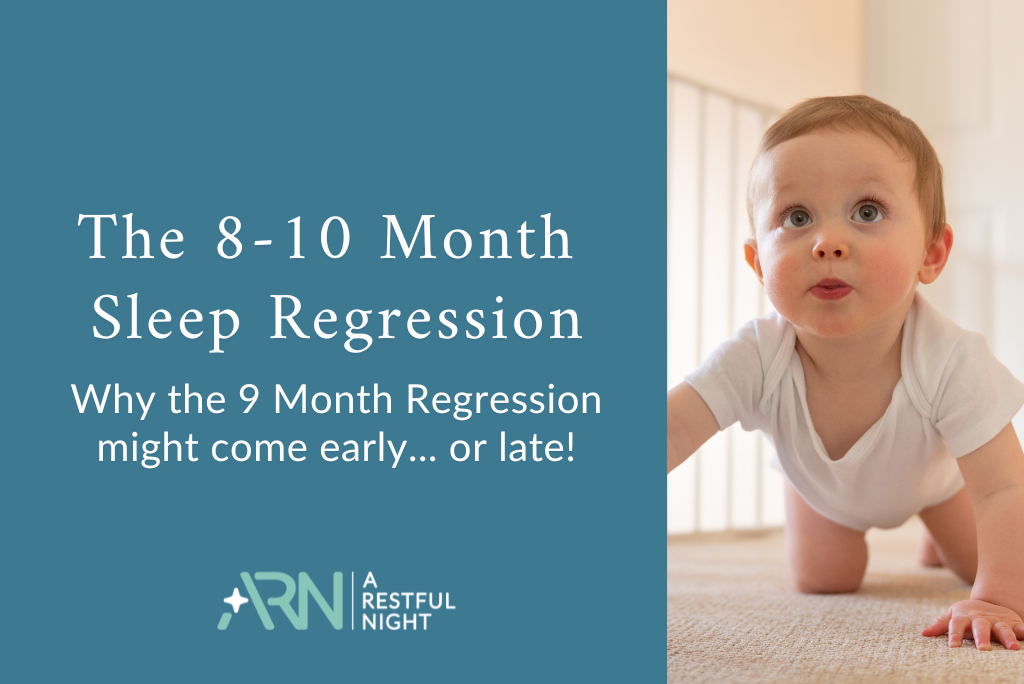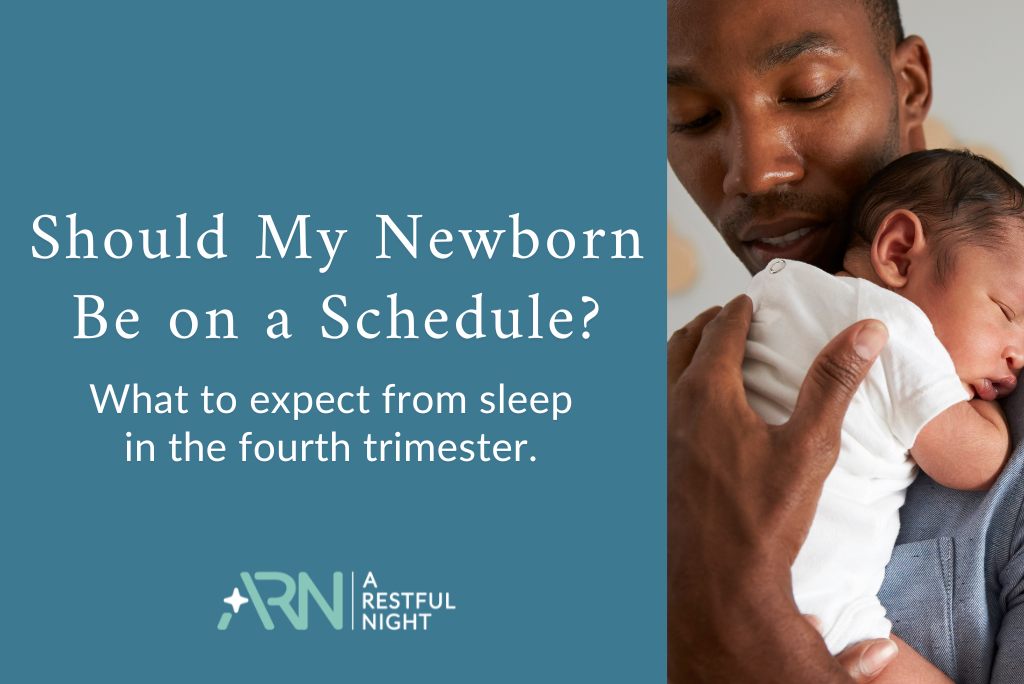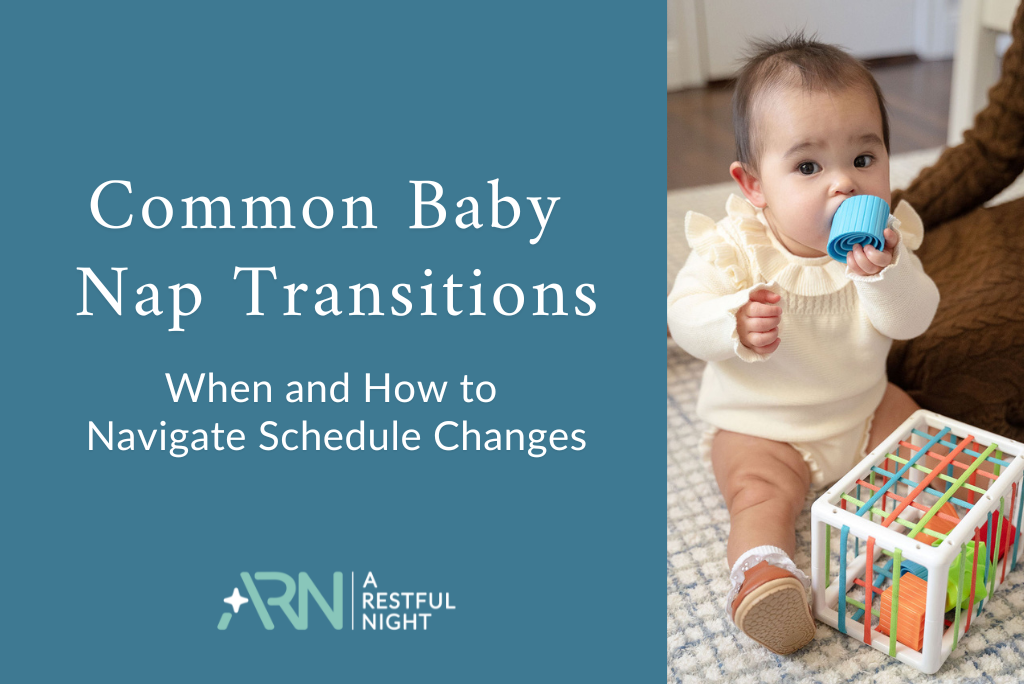How to Help a Teething Baby Sleep at Night: Tips for Better Rest
Teething can make sleep especially challenging for both babies and parents. As those tiny teeth start to push through, it’s common for babies to become more uncomfortable at night, leading to more wake-ups and less rest for everyone.
Common signs of teething include:
Lots of drooling
Increased fussiness or irritability throughout the day
Chewing on hands, toys, or just about anything
Sore or swollen gums
Overnight moaning or disrupted sleep
While this phase can be tough, it’s temporary. With the right soothing strategies and a little extra support, you can help your baby stay more comfortable and get the sleep they need. Here's how to make bedtime more restful during teething:
How to tell if teething pain is causing nighttime trouble
Not sure if teething is the reason behind your baby's restless nights? Here are some clues that teething might be disrupting sleep:
Your baby is usually a solid sleeper but now is waking more frequently than usual
Overnight sleep seems uncomfortable, with periods of moaning, whining and sounds of general discomfort.
They’re extra fussy or irritable during times when they are usually happy, like bedtime routine.
You notice them chewing on their hands or crib rails during night wakings.
They're showing clear daytime teething signs—like drooling, swollen gums, or refusal to eat.They settle quickly after you offer pain reliever or teething relief (like a gum massage or chilled teether).
While every baby is different, these patterns often point to teething discomfort as the culprit behind sleep struggles.
Does Teething Impact Babies’ Sleep?
Yes, it can, but it’s usually temporary. Teething can make falling asleep harder and lead to more frequent night wakings due to sore gums and general discomfort.
That said, teething doesn’t typically cause major sleep regressions on its own. If your baby’s sleep has significantly changed for more than a few days, or if naps and nights are both disrupted, it might be a combination of teething and other developmental changes (like learning to roll or crawl).
The good news? With supportive soothing strategies and a consistent routine, your baby can still get good rest, even while teething.
How to Soothe a Teething Baby Before Bedtime
If your baby is showing signs of teething and having trouble sleeping, there are gentle ways to ease their discomfort before bedtime.
1. Gum Massage
Gently massaging your baby’s gums with a clean finger provides immediate relief. Applying slight pressure on the sore areas can ease discomfort and help them relax before sleep.
2. Cooling Remedies
Offer chilled teething rings or a damp washcloth that has been refrigerated (not frozen) for 30-60 minutes. Cold sensations help soothe inflamed gums. Additionally, cool teething rings, applesauce or frozen fruit (if age-appropriate) can be a great relief.
3. Over-the-Counter Pain Relief
If your baby is excessively fussy, consult your paediatrician about using infant acetaminophen or ibuprofen. These medications can provide temporary relief when used correctly.
4. Avoid Overstimulation Before Bedtime
Keep playtime calm and avoid excessive screen exposure before bedtime. Overstimulation can make it harder for your baby to wind down, increasing nighttime fussiness.
5. Give a Warm Bath
A warm bath before bedtime can help relax your baby’s body and distract them from teething discomfort, making it easier to fall asleep.
Tips to Create a Comforting Sleep Environment For Your Teething Baby
Teething can turn sleep into a struggle, but a soothing environment can make a world of difference. Here’s how to help your little one sleep better while those tiny teeth make their debut.
1. Maintain a Consistent Bedtime Routine
Babies find comfort in predictability. A calming bedtime routine can signal that it's time for sleep. Try these:
Warm bath: Relaxing and soothing for sore gums.
Gentle rocking: Helps ease discomfort and promote relaxation.
Bedtime story or lullaby: Creates a sense of security and familiarity.
2. Use White Noise
A white noise machine can:
Mask sudden noises that could startle your baby.
Create a consistent sleep atmosphere.
Mimic the comforting sounds of the womb, helping your baby relax.
3. Adjust the Room Temperature
A room that’s too hot or too cold can make teething discomfort worse. Aim for a temperature between 68-72°F (20-22°C) to keep your baby comfortable.
4. Optimize the Sleep Space
Use soft, breathable fabrics for bedding and sleepwear.
Keep the room dimly lit or use a red night light to avoid overstimulation.
Ensure the crib is safe and uncluttered—teething babies love to chew on everything!
5. Offer Comfort and Soothing Touch
Teething pain can make babies extra clingy. Help them feel secure with:
Extra cuddles and skin-to-skin contact.
A gentle massage to promote relaxation.
A pacifier or teething toy to ease gum discomfort before bed.
6. Try a Cool Teething Remedy Before Bedtime
A chilled teething ring can help numb sore gums.
A damp, cool washcloth for chewing provides relief.
If needed, consult your pediatrician about safe pain relief options.
7. Keep Night Wakings Calm and Low-Stimulation
If your baby wakes up due to teething pain, respond with a gentle, soothing approach. Keep the lights dim, avoid talking too much, and use soft shushing or patting to help them drift back to sleep.
Can You Sleep Train During Teething?
Babies are teething on and off for a good two-years, so sleep training during periods of teething is common—but flexibility is key. If your baby is showing signs of discomfort, it’s okay to offer extra comfort while still encouraging self-soothing. Stick to your routine as much as possible, and once the teething flare-up passes, your little one will settle back into better sleep habits.
What to Do If a Baby Wakes Up from Teething Pain?
If your baby wakes up due to teething discomfort,always first give them some space to see if they can settle back to sleep on their own. If not try the following:
Offer a gum massage
Provide a cooled teething ring
Keep the lights dim and interactions minimal to avoid overstimulation
Offer pain reliever and soothe them with gentle cuddles while it kicks in.
You can help your little one become a sleep champ—even during teething! Teaching independent sleep skills means your baby can self-soothe when those pesky teeth try to crash the party. The secret? Start early! Good sleep habits now = no long-term sleep struggles later. So, let’s set them up for sweet dreams (and give you some, too!).
When to Seek Professional Advice?
Teething can be rough, but sometimes, there’s more going on than just new teeth popping through. While mild fever, drooling, and fussiness are totally normal, it’s time to check in with a paediatrician if:
Fever spikes above 100.4°F (38°C) – Teething might cause a slight temp rise, but a high fever can signal something else.
Excessive diarrhoea or vomiting – Extra drooling and saliva can create some loose stoole, but Teething doesn’t typically upset tummies this much.
Symptoms last too long without improvement – If the fussiness, lack of sleep, or discomfort drags on for more than 3-5 days, a professional opinion is a good idea.
Final Thoughts
Teething might shake up sleep routines, but you’ve got this! With a mix of comforting routines, cooling remedies, and lots of extra cuddles, your baby will soon be snoozing peacefully again. Remember, this phase won’t last forever!
It’s okay if some nights feel longer than others - every baby goes through it. The key is to stay patient, be consistent, and trust the process.
No matter what’s disrupting your child’s sleep, we offer complimentary consultation calls to help you build great sleep skills that can outlast the aces and pains of disrupted sleep!
Meg O'Leary is an Infant and Child Sleep Expert and the founder of A Restful Night. Based in Westchester County, NY, she leads a team of certified sleep coaches to provide virtual support to families across the US and around the world.





